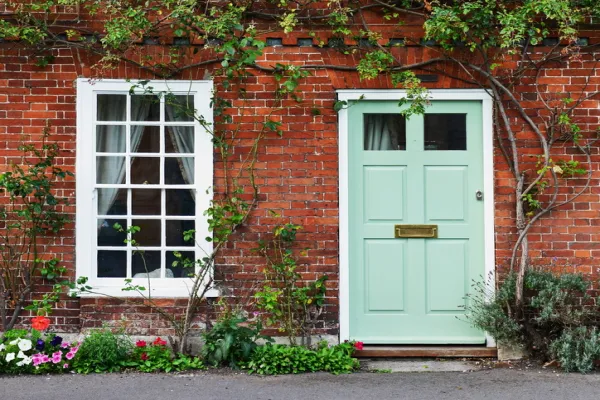When you inherit a property, it can often be happening at a difficult time. If you were close to the person that passed away, then you may be mourning their loss, all while trying to decide what to do with the house that’s now in your possession.
The value of the property you inherit will make a big difference to your situation. A more expensive house will increase the amount of inheritance tax you have to pay (if it’s over the threshold) – and may also impact your decision whether to sell it or not.
Since there is a lot riding on the value of your inherited property, it is only natural to want to know how this valuation is completed. In the blog below, we have outlined most of the key facts that are taken into account when your inherited property is valued. Keep reading for more details.
Historical sold prices in the area
One of the main factors in determining the value of your inherited property, is comparing it with similar houses that have sold in the area, over recent months/years. This is an excellent barometer, because it factors in what homeowners are listing it for; what potential buyers are willing to pay; the location; and the market conditions.
While it is not always easy to find an identical property, by taking several different examples into consideration, your valuer can get a sense of the ‘lay of the land’.
Condition of the house
The condition of your house is another major consideration. If your property has structural damage, or faults with windows, doors or the rooftop, then this will have a major impact on your valuation. This is because it might make the property unsafe, or uninhabitable, or it might simply require a lot of money to fix the issues. Anything that requires further investment from new owners, for example, is likely to be negatively reflected in the valuation.
Market conditions
House prices tend to be higher when the economy is going through a positive period. For example, if interest rates are low, then mortgages are less expensive and people tend to be able to afford to spend more – which can increase the valuation of your house.
By contrast, if the UK is going through a recession at the time you are trying to sell it, then people will have less money to spend, and the offers made on houses tends to go down. These are important considerations, and so the current economy will be considered in the valuation of your inherited house.
Location
Just like with any property, the location of your inherited house makes a big difference. People want to live in an attractive neighbourhood that meets all their needs – and they are willing to pay more to make that happen.
There are lots of small factors that go into whether or not your location is considered ‘desirable’. This includes:
- Crime rate
- Closeness to good schools
- Parking spaces
- Risk of flooding
- Local transport links
- Local amenities
These are just a few of the dozens of considerations. For example, if there is lots of noise pollution in your part of town, this will be seen as a negative – but if you are within walking distance of a train station, this may be seen as a positive thing. Even the specific street you are on, and your location within it, can make a difference.
Features
As you would expect, the features of your inherited property will impact its valuation. If the previous owners lived there for several decades, then whether or not they consistently ‘updated’ it may make a big difference here.
Just like with the location of your inherited house, there are dozens of features that can impact its value. Examples include:
- Ensuite bathrooms
- Newly fitted kitchen
- Size of the garden
- Period features
- Double sized bedrooms
Some of these features are more valuable and/or desirable than others, and an expert valuer will consider all of these. They may also think about where these sorts of features could be implemented, but have not been done so yet, or if there is simply not enough space.
Whether any refurbishments or extensions have been completed will also be considered, which we cover further in the section below.
Recent refurbishments or extensions
Refurbishments and/or extensions to the property will usually increase its value, especially if the job has been done well and if it increases the square footage. Generally speaking, houses with more square footage are valued higher, so adding an extension, or putting in a loft conversion to create one more bedroom, will both increase your value.
By contrast, if a recent change has been poorly done, and has created other associated problems in the house, then this will be seen as a negative. Whether those changes can be permanently undone, along with any complications – for example, neighbour disputes that have cropped up in the process – is another matter.
Existing planning permissions for extensions
If you or the previous owners have already obtained planning permission for an extension, then this may be considered valuable for a new owner. After all, even though they are not required to proceed with your proposed changes, it saves them a lot of time and paperwork to know that permission has been granted, and that the option is there.
On the other hand, if planning permission has been denied on your property, then this will negatively impact its value. That’s because it may prevent any new owners from carrying out the changes that they have in mind.
Any issues – short lease, lack of curb appeal, and so on
The purpose of a property survey, or searches carried out by a conveyancer, is to identify issues that exist with a house. While your valuer may not have the luxury of all this information, they will still be able to identify certain problems that will affect the property value, such as:
- Short lease length
- Old paint
- Plumbing and electrical issues
- Lack of curb appeal
- Absence of a garage or driveway
- Rusty fences
Your valuer should provide you with guidance on what these issues are, so you are able to consider rectifying them, where appropriate. Keep in mind that sometimes fixing these problems is more expensive than the amount that they are negatively affecting your price. After all, not everyone cares about old fences or a lack of a garage. You may therefore need to pick and choose which alterations to make, and which ones to leave be.
Considering Inheritance Tax
Once a final value for your inherited property is agreed on, this will have a major difference on the inheritance tax you need to pay.
In the UK, there is typically no Inheritance Tax to pay if the property is worth less than £325,000. If the house is worth more than this, the inheritance tax rate is 40%.
So, for example, if the house is worth £600,000, the inheritance Tax is charged at 40% of £275,000. You won’t be charged 40% of the house’s value, but rather anything above the £325,000 threshold.
You may not have to pay this tax, even if the house is more than £325,000, if you inherit from your spouse or civil partner.
















